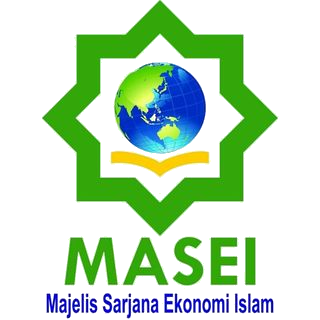Unfolding the possibility to develop share-waqf in Indonesia through the concepts, opportunities & challenges
Aldi Khusmufa Nur Iman(1), Faridatun Najiyah(2*), Munji Asshiddiqi(3)(1) UIN Sunan Ampel Surabaya
(2) STEI Permata Bojonegoro
(3) The University of Queensland Australia
(*) Corresponding Author
Abstract
Indonesia is a country with the largest Muslim population in the world. The potential of Islamic financial instruments for the welfare of the people grows in society, one of which is cash waqf and shares. Most Islamic scholars allow cash and shares to be used as objects of waqf. Both cash and stock endowments can be implemented into two models. Cash waqf can be implemented as mutual funds or converted into other fixed assets. Meanwhile, the implementation of share waqf can be done through corporate waqf and individual share waqf. Individual share waqf is applied with two models, namely waqf from the profit of shares and waqf in the form of per-lot Sharia shares. The purpose of this study is to determine the concepts, opportunities and challenges of share waqf in Indonesia. Based on the research, it was found that share waqf has a great opportunity in Indonesia, considering that the majority of the population is Muslim. However, the implementation of the share waqf program in Indonesia in the future face various challenges that must be resolved in order for the share waqf to develop in Indonesia.
Keywords
Full Text:
PDFReferences
Badan Wakaf Indonesia. (2020). Laporan Hasil Survey Indeks Literasi Wakaf 2020. 1, 7–8.
DSN-MUI. (2011). Fatwa Dewan Syariah Nasional No. 80/DSN-MUI/III/2011. Retrieved from Fatwa DSN-MUI: https://www.syariahsaham.com/p/fatwa-dsn-mui.html
Febriandika, N. R. (2020). The Effect of Distributive Justice, Procedural Justice of Compensation and Emotional Intelligence on Affective Commitments. Jurnal Ilmiah Ekonomi Islam, 6(1), 34-41.
Febriandika, N. R., & Hakimi, F. (2020). Analisis kesesuaian syariah electronic money pada bank penerbit uang elektronik di indonesia. An-Nisbah: Jurnal Ekonomi Syariah, 7(1), 213-249.
Febriandika, N. R., Millatina, A. N., & Herianingrum, S. (2020). Customer E-Loyalty of Muslim Millennials in Indonesia: Integrated Model of Trust, User Experience and Branding in E-Commerce Webstore. In Proceedings of the 2020 11th International Conference on E-Education, E-Business, E-Management, and E-Learning (pp. 369-376).
Hadi, A. A. (2017). Fikih Muamalah Kontemporer. Depok: Rajawali Pers.
Hogan, N. (2016). Wakaf Saham, Alternatif Model Wakaf Produktif. Retrieved October 25, 2020, from http://www.ekonomisyariah.org/5683/wakaf-saham-alternatif-model-wakaf-produktif/
IDX. (2019). Press Release No 075/BEI.SPR/11-2019: Tahun Ini Jumlah Investor Baru BEI Lampaui Capaian Tahun Lalu. Retrieved October 24, 2020, from https://www.idx.co.id/berita/press-release-detail/?emitenCode=1183
IDX. (2020). Press Release No: 082/BEI.SPR/09-2020: Penghargaan Internasional sebagai The Best Islamic Capital Market kembali Diraih BEI pada GIFA 2020. Retrieved October 28, 2020, from https://www.idx.co.id/berita/press-release-detail/?emitenCode=1376
Indah Yuliana, S. P. (2019). Model Penerapan dan Potensi wakaf saham di Indonesia. Jurnal Perspektif Ekonomi Darussalam, 227-239.
Investasi Kontan. (2020). Jumlah investor di pasar modal sudah capai 3,02 juta investor per Juli 2020. Retrieved October 28, 2020, from https://investasi.kontan.co.id/news/jumlah-investor-di-pasar-modal-sudah-capai-302-juta-investor-per-juli-2020
Komite Nasional Keuangan Syariah. (2018). Masterplan Ekonomi Syariah Indonesia 2019-2024. Kementerian Perencanaan Pembangunan Nasional/ Badan Perencanaan Pembangunan Nasional, 1–443.
Majelis Ulama Indonesia. (2002). Keputusan Fatwa Komisi Fatwa Majelis Ulama Indonesia tentang Wakaf Uang. Jakarta.
Modul SPM. (2018). Jakarta: Bursa Efek Indonesia.
Muzarie, M. (2010). Hukum Perwakafan dan Implikasinya terhadap Kesejahteraan Masyarakat: Implementasi wakaf di Pondok Modern Darussalam Gontor. Jakarta: Kementerian Agama RI.
Najiyah, F., & Febriandika, N. R. (2019). The Role of Government in the Zakat Management: The Implementation of A Centralized and Decentralized Approach (Comparative Study in Indonesia and Malaysia). In 2018 International Conference on Islamic Economics and Business (ICONIES 2018). Atlantis Press.
Paksi, G. M., Manzilati, A., & Ekawaty, M. (2018). Kajian Hukum Dan Implementasi Wakaf Harta Bergerak Di Indonesia: Wakaf Uang Dan Saham. ISLAMICONOMIC: Jurnal Ekonomi Islam, 9(2), 173–190. https://doi.org/10.32678/ijei.v9i2.94
Rozalinda. (2017). Fikih Ekonomi Syariah: Prinsip dan Implementasinya pada Sektor Keuangan Syariah. Jakarta: Rajawali Pers.
Sharia News. (2019). BWI Ungkap Tantangan Wakaf Saham Bagi Nazir. Retrieved October 29, 2020, from https://sharianews.com/posts/bwi-ungkap-tantangan-wakaf-saham-bagi-nazir
Wakaf Al Azhar. (2020). Wakaf Saham. Retrieved October 25, 2020, from http://wakafalazhar.com/ptta-portfolio/wakaf-saham/
World Bank. (2019). Population, total-Indonesia. Retrieved October 24, 2020, from https://data.worldbank.org/indicator/SP.POP.TOTL?contextual=max&locations=ID
Article Metrics
Abstract view(s): 1065 time(s)PDF: 935 time(s)
Refbacks
- There are currently no refbacks.















